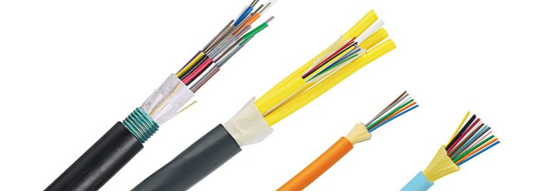Oufu Optical Fiber Cable Co., Ltd
Te atureti: Shenyang, Liaoning, Tiaina
Te aomata ae reitaki: Te Manane Zhang
Te tareboon: 400-964-1314
Te tareboon: 86 1390405338
?
2024-12-17 1113
Exploring the Benefits, Types, and Applications of Aerial Fiber Optic Cables

In the fast-paced world of modern communication, the role of aerial Cabe ae boous cannot be overstated. These cables, which are suspended in the air rather than buried underground, play a crucial role in transmitting data over long distances with minimal loss and maximum efficiency. This article will delve into the benefits, types, and applications of aerial Cabe ae boous, highlighting their importance in today's connected world.
Keywords: Aerial Fiber Optic Cable, Communication Networks, Data Transmission, Efficiency, Suspended Cables
Body:
1. The Benefits of Aerial Fiber Optic Cables
Cost-Effective Deployment: Aerial Cabe ae boous offer a cost-effective alternative to buried cables, especially in areas with difficult terrain or high population density. By avoiding the need for excavation and trenching, aerial cables can be installed Ae bati riki, quickly and with less disruption to daily life.
Enhanced Reliability: Suspended cables are less likely to be damaged by ground-level activities such as construction or natural disasters like earthquakes. This makes aerial Cabe ae boous a Ae bati riki, reliable option for critical communication infrastructure.
Flexibility in Routing: Aerial cables can be routed around obstacles with ease, allowing for Ae bati riki, flexible and efficient network design. This is particularly useful in urban areas where underground space is limited and buried cables may be impractical.
2. Types of Aerial Fiber Optic Cables
ADSS (All-Dielectric Self-Supporting) Cables: These cables are designed to support themselves and do not require additional messenger wires or structural support. They are lightweight and easy to install, making them a popular choice for aerial deployments.
Lashed Cables: Lashed cables are attached to existing overhead structures such as telephone poles or power lines. This method of installation can be cost-effective in areas where such structures already exist.
Www.Ae e a tia n tei ae riaocable.cn
Aerial Bundled Cables (ABC): ABCs are a type of power cable that can also carry optical fibers. They are designed to be suspended in the air and offer a compact, integrated solution for both power and communication needs.
3. Applications of Aerial Fiber Optic CablesWww.Ae e a tia n tei ae riaocable.cn
Telecommunication Networks: Aerial Cabe ae boous are widely used in telecommunication networks to provide high-speed, low-loss data transmission. They are essential for connecting homes, businesses, and data centers across vast distances.
Broadcasting and Media: The broadcasting and media industries rely on aerial Cabe ae boous to transmit high-definition video and audio signals with minimal delay and distortion. This ensures that viewers and listeners receive high-quality content in real-time.
Utility and Infrastructure Monitoring: Aerial cables are also used in utility and infrastructure monitoring systems to transmit data on the status of power lines, pipelines, and other critical infrastructure. This data can be used to prevent outages, detect faults, and ensure the safe and efficient operation of these systems.